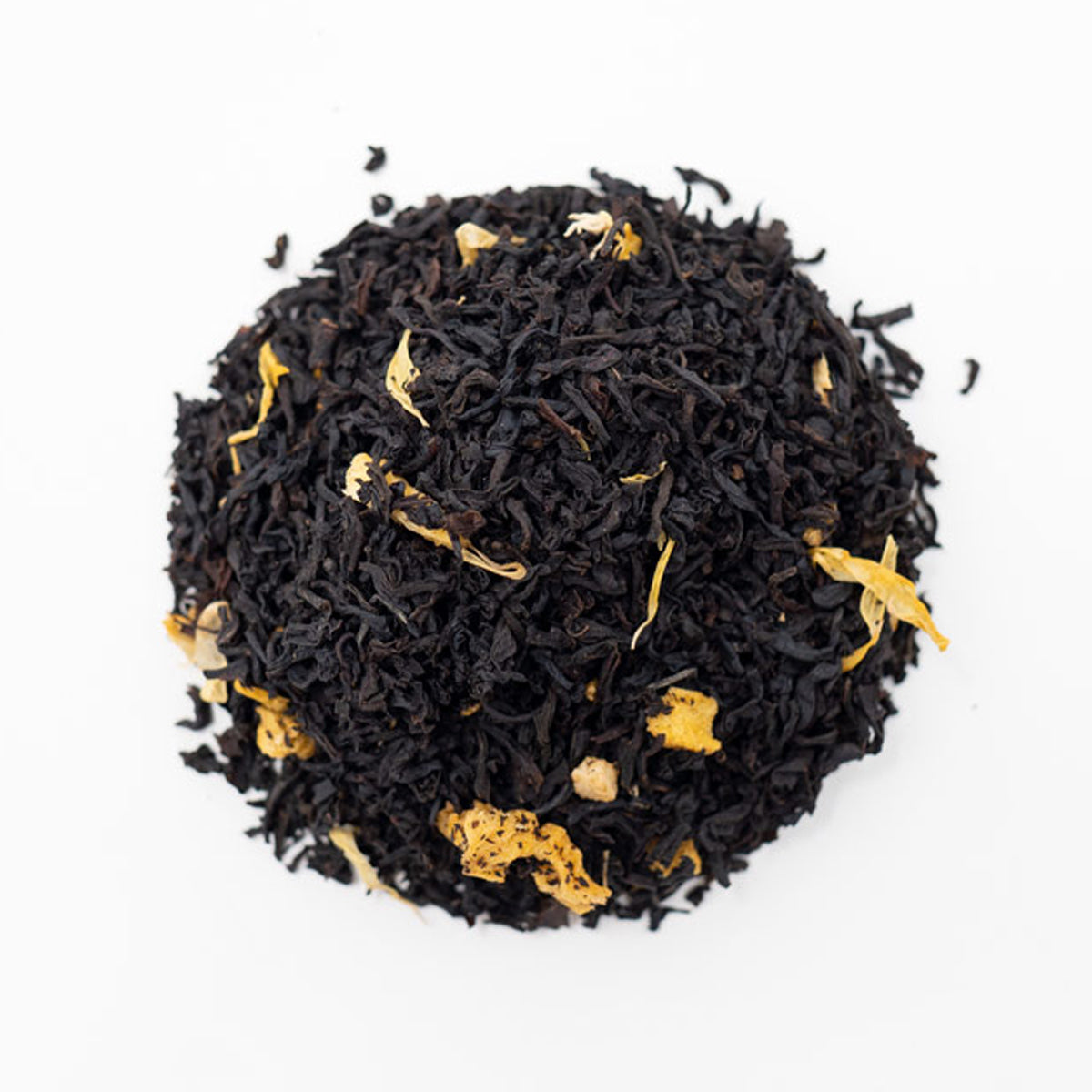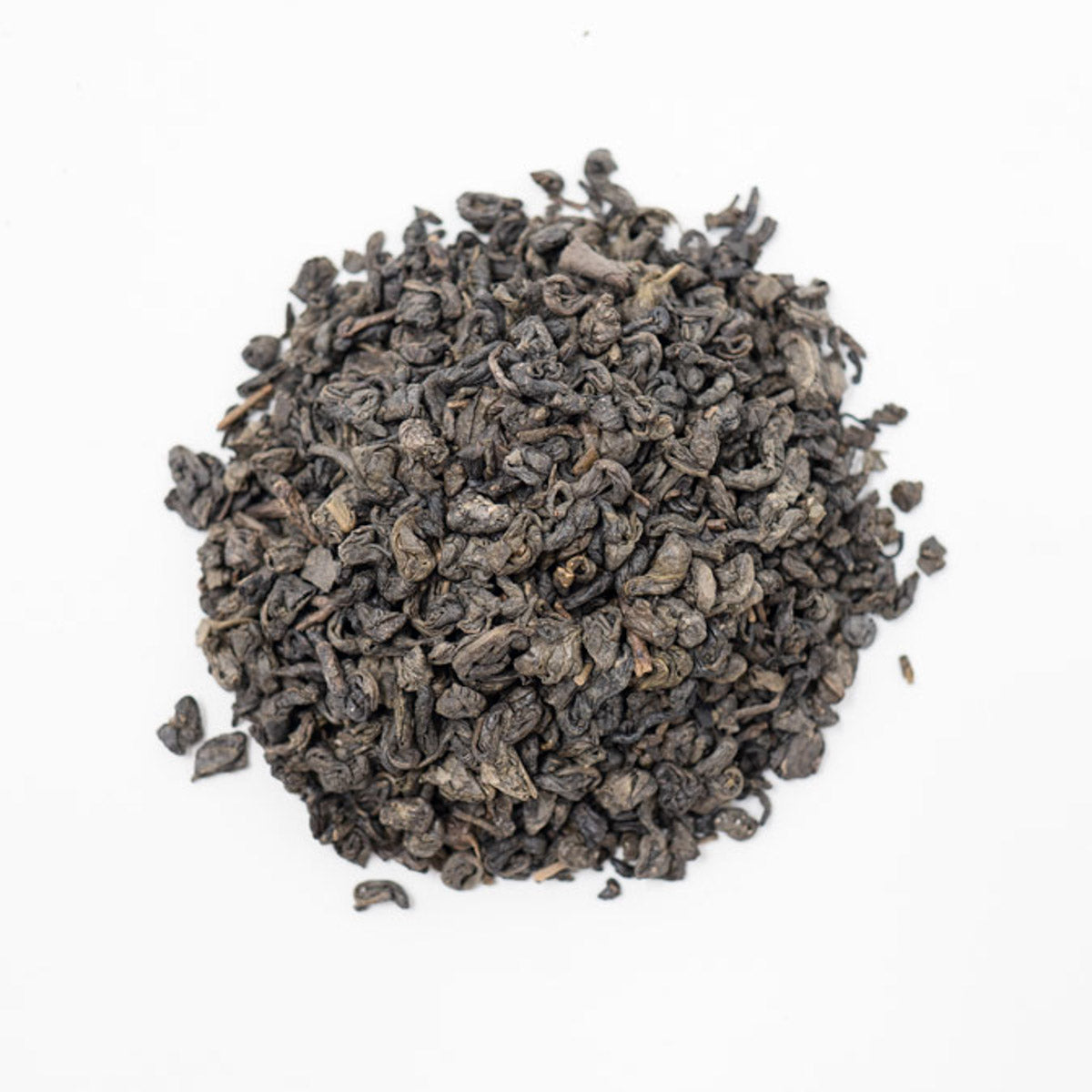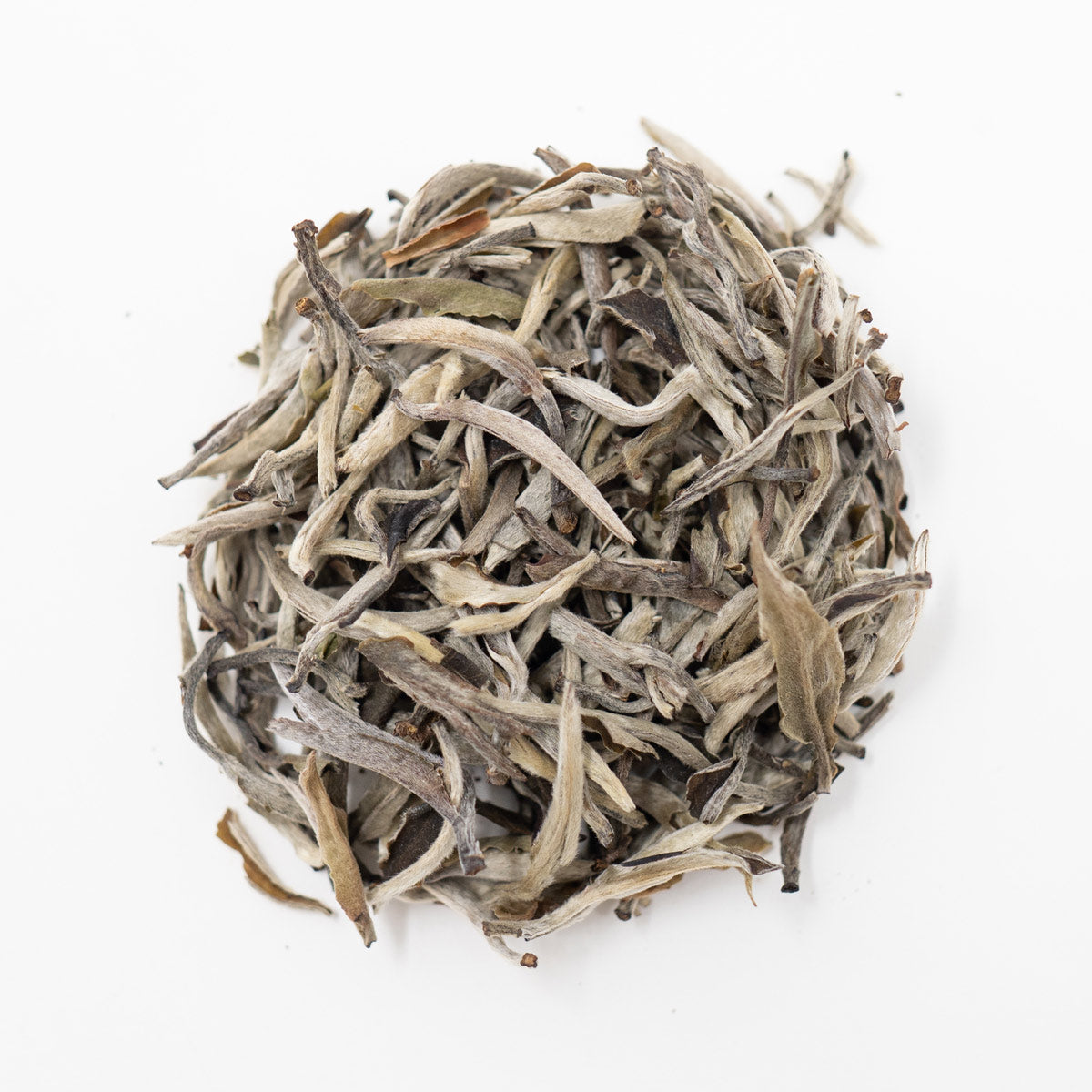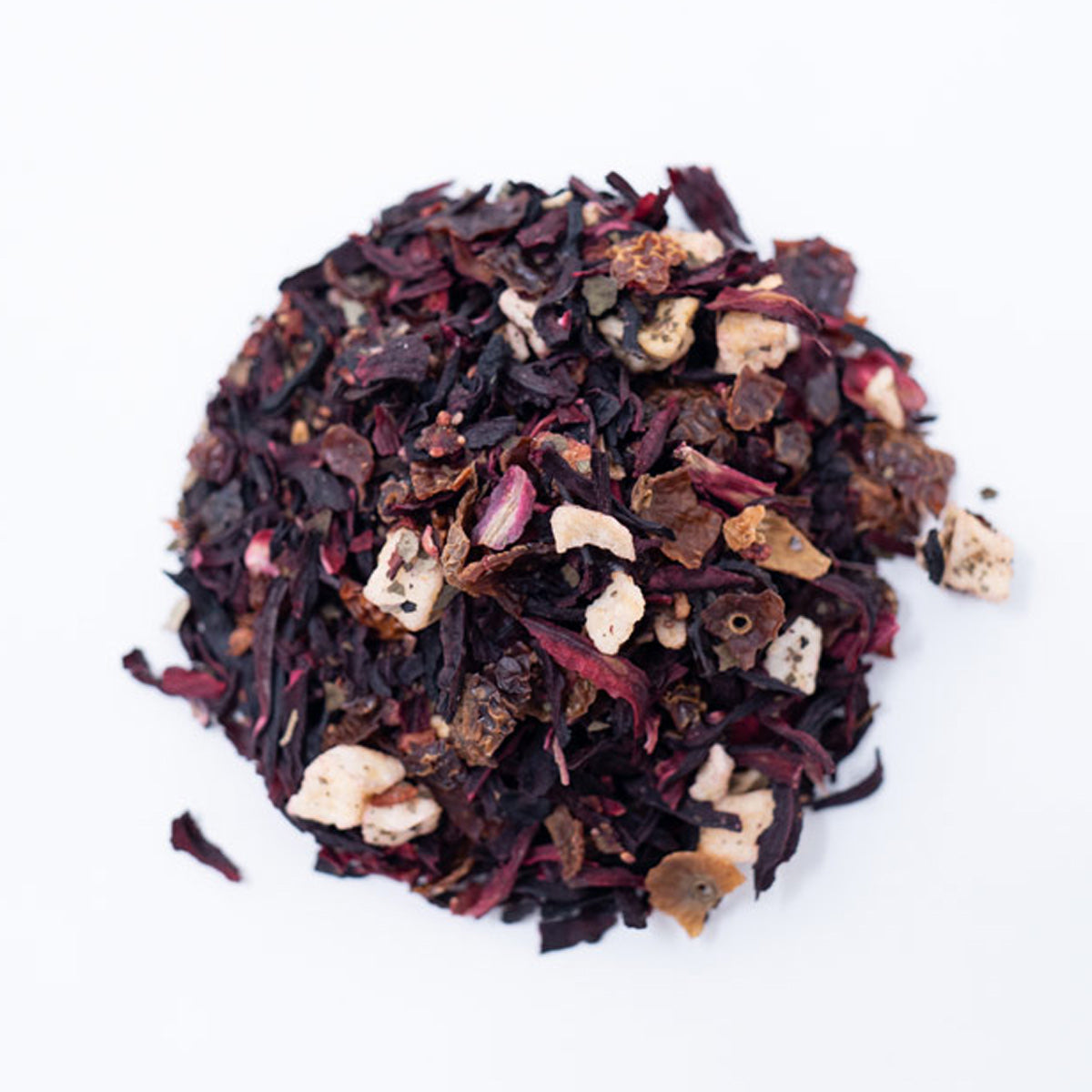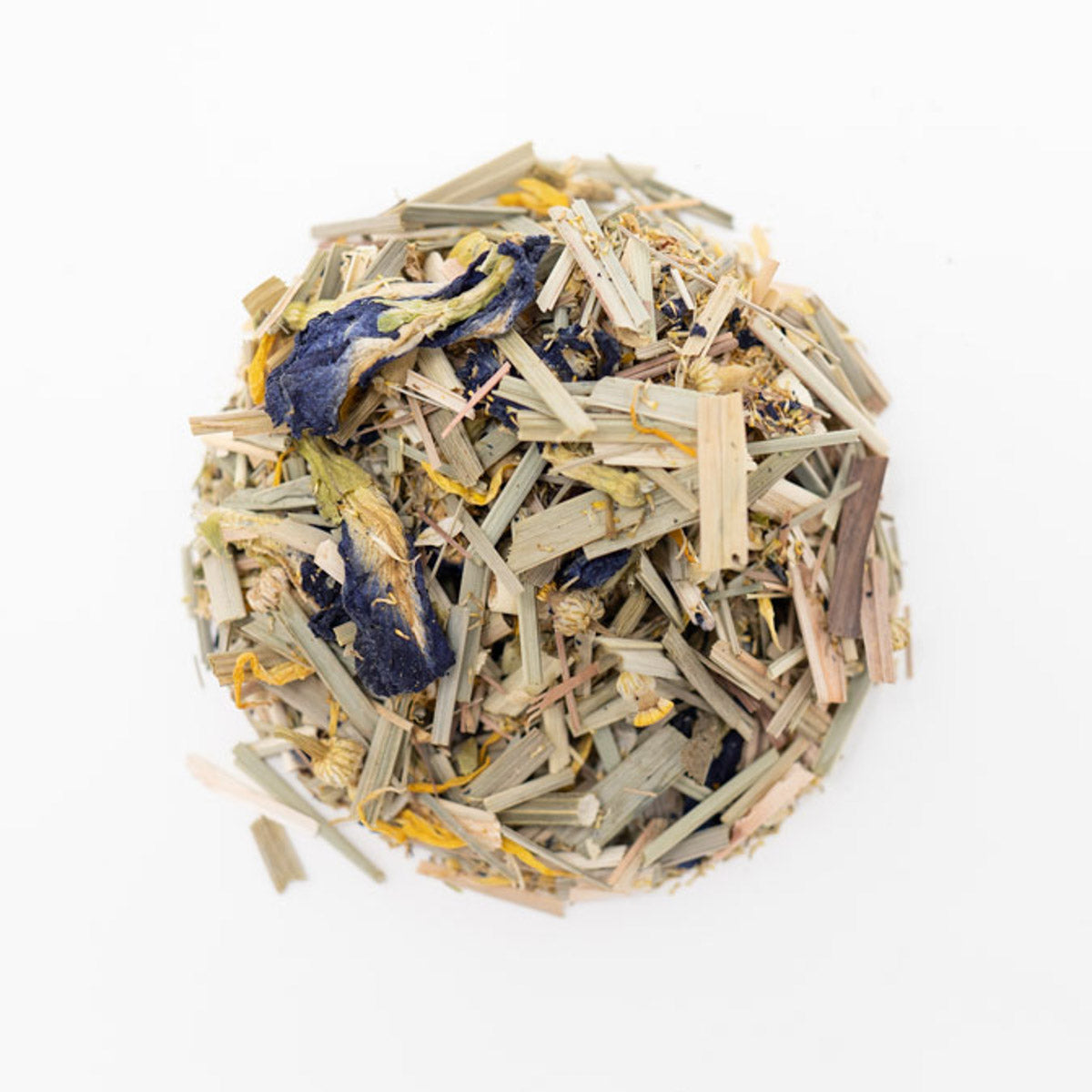Combat Allergies Naturally with Tea

Here at Hackberry, we have done extensive research on how tea can provide health and wellness benefits. In previous articles, we’ve explored how tea can help with stress, flu season, sleep, and even skincare. Today we will be looking at how tea can help you stay healthy and happy during allergy season.
While over 100 million people in the United States have allergies, many don’t know exactly what an allergy is. The Asthma and Allergy Foundation of America, or AAFA, defines an allergy as “when your immune system reacts to a foreign substance, called an allergen. It could be something you eat, inhale into your lungs, inject into your body, or touch.” The most common allergic reactions include sneezing, hives, rashes, itchy eyes, a runny nose, and a scratchy throat. However, it is important to note that severe allergies will result in more severe reactions, the worse being life threatening if not treated with the appropriate medical attention.
Allergy season is when seasonal allergies, mainly plant-related ones, are most prominent. In the United States, allergy season starts in February and lasts until early summer, although the exact months can fluctuate depending on location and which allergens you are affected by. There are 19 different allergy regions in the United States, each with its own peak months and distinguished allergens. The state of Arizona, our home base, is in a unique position because it falls under two of these allergy regions, the Intermountain & High Desert region and the Desert Southwest region. Based on this regional information, allergy season peaks in Arizona in April and May and then again in September. The most common allergens in Arizona are ragweed, bermuda grass, Russian thistle, ash tree, mesquite tree, mulberry tree, cottonwood tree, oak tree, and olive tree. Nationwide, the most common allergens are tree pollen, grass pollen, weed pollen, mold spores, dust mites, cockroaches, cat and dog dander, and rodent urine.
While there is no cure for allergies, there are many ways to treat them and make the symptoms more manageable. Sometimes tea is used to alleviate symptoms, especially Rooibos tea, green tea, and certain herbal ingredients.
Rooibos:
Rooibos is a popular choice of tea when it comes to alleviating allergy symptoms. Rooibos tea is caffeine free and comes from the Aspalathus linearis plant, which belongs to the legume family. This tea has bioactive flavonoids which work similarly to antihistamines, a drug commonly used to alleviate allergy symptoms. The discovery of Rooibos’ medicinal properties is credited to Dr. Annique Theron of South Africa. In the 1960s, Dr. Theron’s daughter, Lorinda, developed an allergy to breast milk. Dr. Theron tried many different approaches to helping her daughter but hadn’t had much success with anything until she put a bit of Rooibos in her daughter’s milk. She found that this mixture helped soothe the baby’s symptoms and allowed her to continue drinking breast milk. After her discovery, Dr. Theron continued to research the health properties of Rooibos. She went on to dedicate the rest of her career to helping people through allergy relief and skin care remedies, eventually establishing the Annekie Thereon Ondernemings Ltd in 1971. Some of our favorite Rooibos teas during allergy season include our Orange Almond Spice Rooibos and our Blueberry Burst Green Rooibos.
Green Tea:
Green tea is another popular choice when it comes to allergy relief. Green tea is a caffeinated superfood packed with antioxidants like quercetin. Quercetin is a type of flavonoid that, similar to those found in Rooibos, works like an antihistamine.Green tea also has anti-inflammatory properties that can help soothe symptoms like a stuffy nose or congestion. Other nutrients in green tea can help boost your immune system and overall health, which never hurts during allergy season. If you decide to incorporate green tea into your allergy season routine, we have plenty of options to choose from. You can never go wrong with our Gunpowder Organic if you want something classic. For something with a fruity twist, try our Lemon Meringue Green. For something on the floral side, check out our Jasmine Love. Whatever it is you are looking for, our collection of green tea is sure to have something for you!
Herbal Ingredients:
There are also a handful of herbal ingredients that are known for allergy relief benefits, the most popular of these is mint. Mint has a positive impact on your body’s olfactory system. This can help alleviate allergies, headaches, and tension. It also has high levels of antioxidants, Vitamin A, Vitamin C, Vitamin B6, riboflavin, thiamin, and compound essential oils to keep you feeling your best. Our Citrus Mojito combines mint and green tea while our Afternoon Calm combines mint and Rooibos, both great options for allergy season. Other herbal ingredients that can help soothe allergies include ginger, lemon balm, licorice root, berries, turmeric, stinging nettle, and rosemary.
While tea can be a fantastic way to alleviate allergies, please remember that we are not medical professionals. If you have serious allergy concerns, please contact your healthcare provider. Also remember that some people may be allergic to these tea types and herbal ingredients themselves. If you are experiencing an allergic reaction, seek medical attention.
Written by Kourtney Camm
